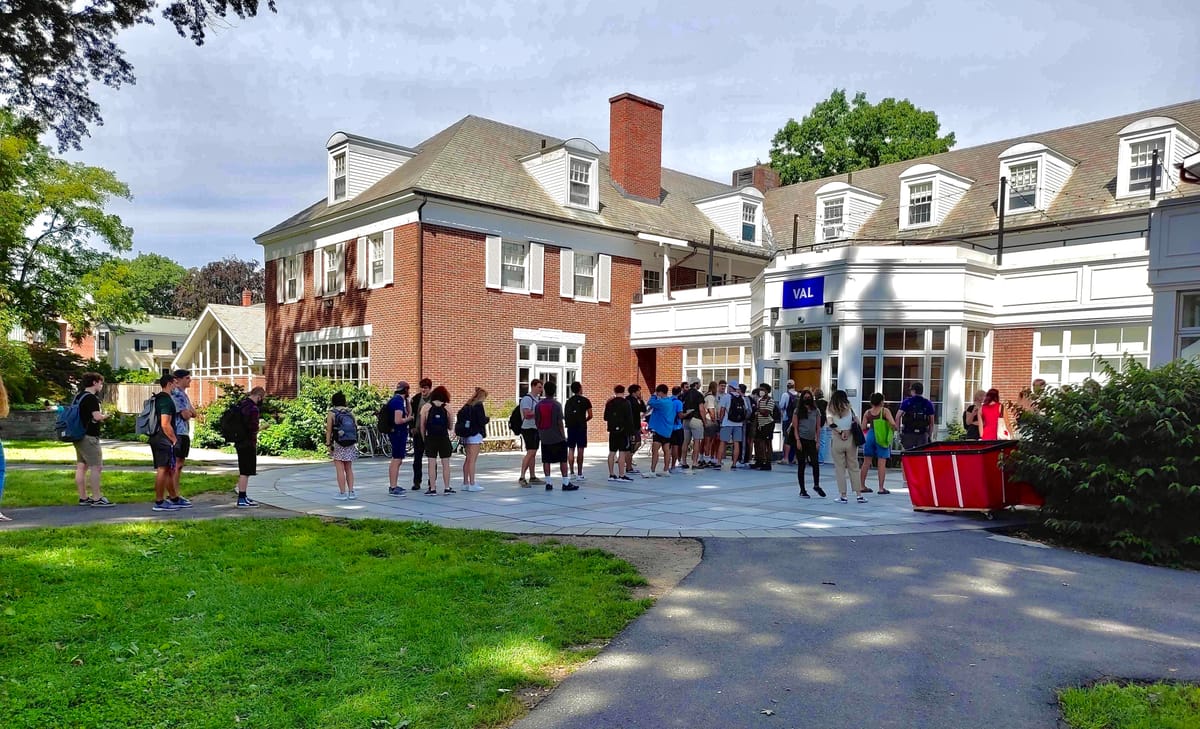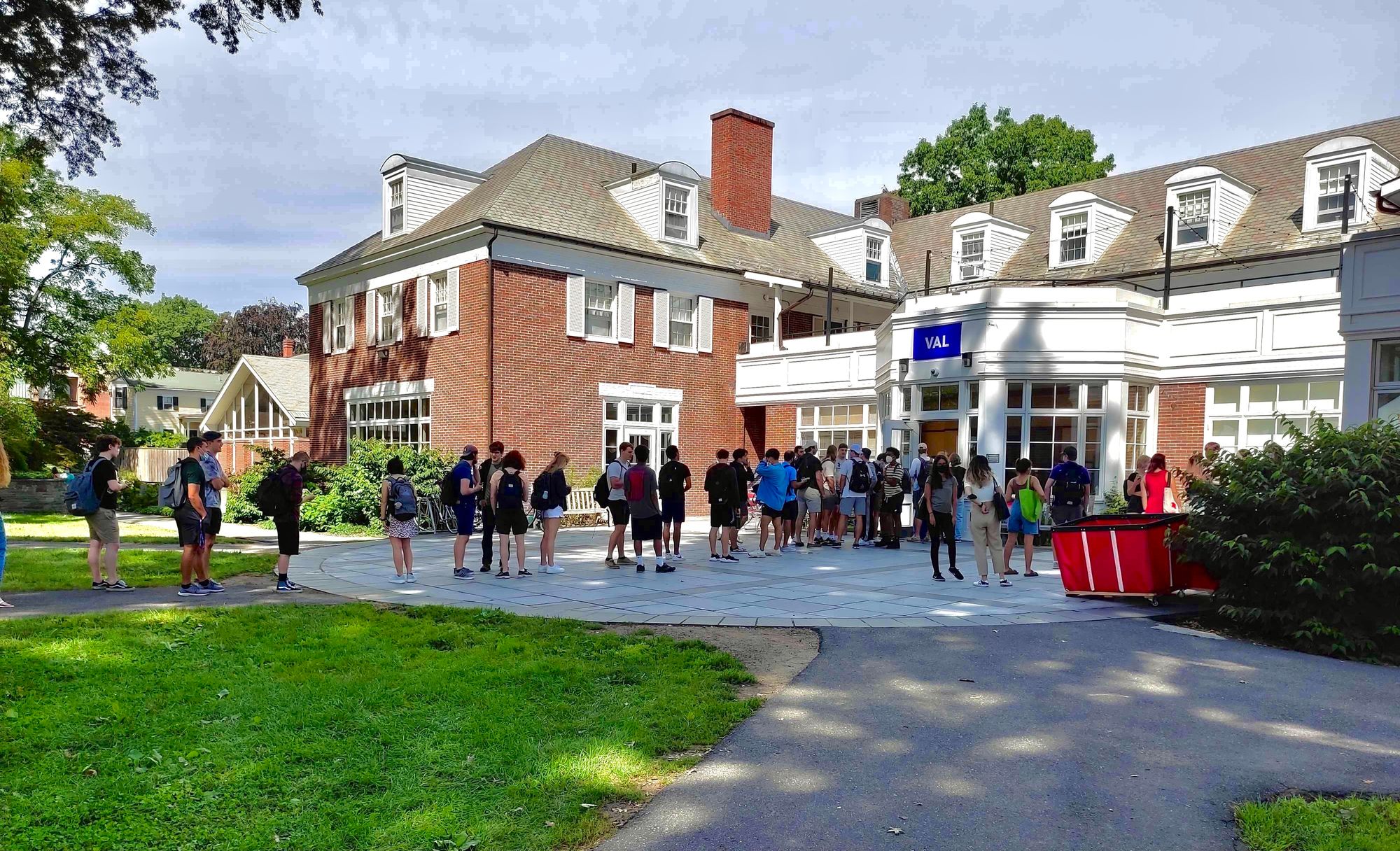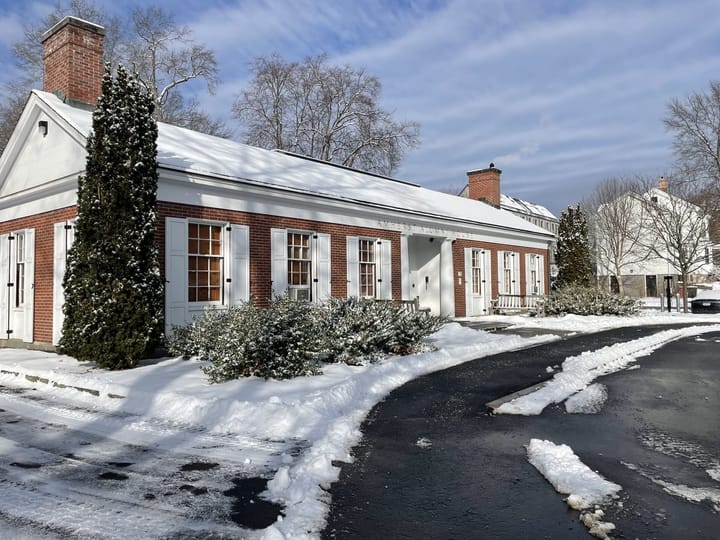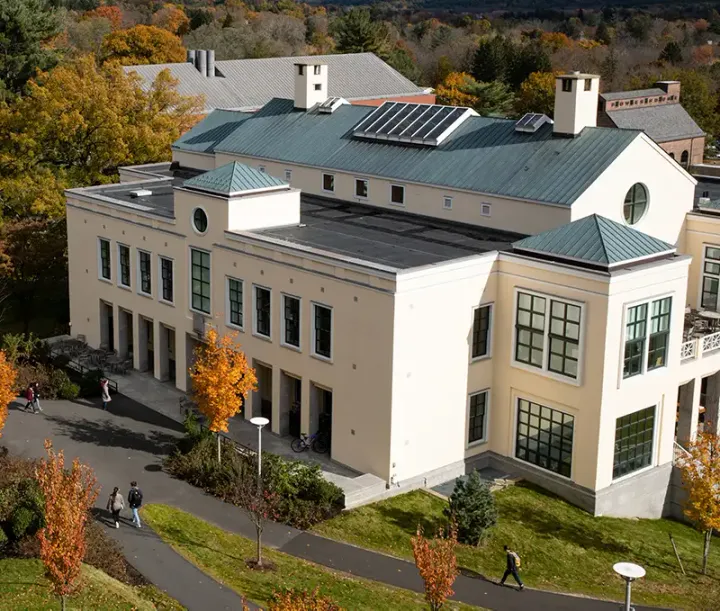New Covid Protocols: Necessary or Nonsense? Students React.
The college announced on Aug. 24 that it had tightened its Covid rules until Sept. 13. The new restrictions prompted an open letter signed by over 400 students calling to relax the rules. In response, the college sent an email on Aug. 28 revising some protocols, though most remained in place.


Amid concerns surrounding the Delta variant of Covid-19, the college announced on Aug. 24 that it had tightened its public health rules for the first two-and-a-half weeks of the fall semester. The heightened restrictions prompted an open letter signed by more than 400 students that called on the administration to clarify and reverse the changes. In response, the President’s Office issued another email on Aug. 28 explaining its rationale and revising some of its protocols, though most of the rules were kept in place. Further student concerns were later addressed at a town hall meeting on Monday evening.
As they currently stand, the protocols mandate that students double-mask (wear two pleated filter masks on top of one another) in classrooms and other academic spaces operating at 100 percent capacity if they are not wearing a KN95 mask. Students need only wear a mask when outdoors if they are in a “high-density” gathering for 10 to 15 minutes or have been identified as a close contact of a positive Covid case. Students are permitted to go into the town of Amherst to “conduct business” and pick up takeout meals, but are not allowed to go into restaurants, indoor cafes or bars.
The college’s Covid protocols have received significant media attention for their strictness compared to the restrictions implemented at peer institutions, with the topic trending on Twitter on Monday after being tweeted about by several journalists, including senior ProPublica reporter Alec MacGillis and FiveThirtyEight founder Nate Silver.
Covid Safety Precautions
Despite protests from students, parents and alumni, the college has decided to carry over — and in some cases increase — restrictions from the summer term due to the spreading Delta variant of the coronavirus. Upon arrival, all students received both a PCR test and a rapid antigen test.
The college has decided that in accordance with guidance from the Centers for Disease Control and Prevention (CDC), anyone who has tested positive for Covid will be put into isolation for 10 days in either designated dorm rooms or at home for students and staff respectively. The college is not offering standard remote learning options this year, but class deans will assist quarantined students so that they do not fall behind on school work.
Close contacts of Covid-positive individuals who have been fully vaccinated and are asymptomatic will not need to quarantine but will be tested more frequently and advised to avoid close contact with other community members.
Events and sports competitions are slated to take place as scheduled. Spectators are allowed but must be masked. No pre or post-game tailgating or celebrations will be permitted. Large events will be minimized and there will be no registered parties indoors on the campus grounds. No events with alcohol will be permitted throughout the two week provisional period.
In an email to the college community, President Biddy Martin stated that the college expects to be able “to relax some of the rules when [it is] confident the virus is not harder to control than we had predicted and is not beginning to take an even more virulent form.”
Amherst will require all employees, faculty and students to wear face coverings while inside campus buildings — regardless of their vaccination status, according to an email sent from Martin on Aug. 16. The masking requirement was enhanced as of Aug. 24: all students must double-mask (wear two pleated filter masks on top of one another) if they are not wearing a KN95 mask in classrooms and other academic spaces operating at 100 percent capacity. The college has purchased a bulk supply of KN95 masks, which have been made available for the Amherst community to take. Chief of Campus Operations Jim Brassord reported that the KN95 masks were delivered on Aug. 30 and put in student mailboxes on Aug. 31. Faculty and staff who request KN95 masks will also receive them.
As of Aug. 19, less than 1 percent of students have requested a vaccine exemption. The college has been verifying vaccine status[es] for staff and faculty as they returned to campus over the course of August, Chief Communications Officer Sandy Genelius wrote to The Student.
Community members could originally unmask in their residence halls, but that is no longer the case. Masks are now required in residence hall common areas, until at least Sept. 13. Students may unmask in their own dorm rooms. Alternatively, when indoors and outside of their residence halls, unvaccinated students must be masked at all times unless they are alone with the door closed. If outdoors, unvaccinated students must wear face coverings when a six-foot distance cannot be maintained. All community members must mask up if they are attending a gathering of more than 25 people, regardless of the location on campus.
Student Reactions
Though there is general acceptance of the original mandate among the student body, the enhancement of Covid restrictions on Aug. 24 prompted significant student opposition. An open letter, signed by over 400 students as of Aug. 26, called on the administration to be more transparent about its decision-making process, factor in student voice and repeal some of the new restrictions that the letter argues are unnecessary and unduly harsh.
“This updated set of guidelines appears to be out of line with the current CDC, state, local and peer institution standards for Covid-19 response, and we demand revision and clarification,” the open letter read. “It is currently challenging to believe that Amherst remains committed to our full student experience, and difficult to regain the typical enthusiasm that comes with returning to campus each fall.”
Many students had expected the original masking mandate announced on Aug. 16. “I don’t think I was surprised with the masking mandate given that these expectations were communicated at the end of last semester and through the spring,” said Isabelle Lobo ’22. “I think it’s a reasonable protocol to put in place given that the Delta variant cases are on the rise.”
Ella Vacchi ’23 expressed a similar sentiment: “Given the more we’re learning about Delta and the other variants daily, especially in the first few weeks of classes, it would be foolish to not have [a mask mandate].” Vacchi is hopeful that the administration will reassess further into the semester and consider a reduction in masking restrictions at that time.
Despite the college’s acknowledgement of student remonstrance to the Covid policies in the Aug. 28 email, many members of the college community are disappointed that they will be beginning another semester governed by anti-virus regulations. Woohyun Kwen ’25 said, “I have to admit that I was disappointed in the situation after hoping that we would be able to enjoy a year without such strict restrictions.”
Kwen agreed with the college that it is better to start the semester with stricter rules that loosen over time, but expressed disappointment about the timing of the email which hardened the restrictions: “I disliked that these changes were announced the day before [first-year] move-in day. It was discouraging to have our expectations altered so suddenly.”
Christian Fagnant ’24 felt similarly: “I was with some friends when they received [the email], and the consensus seemed to be disappointment and a desire to return to a normal on-campus experience, especially if everyone is vaccinated.”
Several questions remain regarding who decides the Covid safety measures and the “confidential sources” that are consulted in their formulation. The email sent on Aug. 27 did not disclose who has the final say in determining the regulations. It did relay that “[the college does] not share the sources of information, analysis, or recommendations that [it] receives in confidence or in confidential meetings unless we have permission to do so.” The fact that sources of information used to make rules that govern student life are not divulged left many puzzled.
Olivia Stockard ’22, who did research in Germany for the past eight weeks, is frustrated by the disparity between restrictions at German universities and at Amherst. “No university there puts tighter restrictions than the state which I think is where my frustration lies. Amherst seems to be creating frustrating, temporary restrictions that do more to stifle student life than to be a preventative measure.”
There are some students who are pleased to see the college taking preventative measures against the Delta variant. Lev Robertson ’23 said, “Maybe an unpopular opinion but I think a lot of the college’s Covid restrictions are necessary. Infections are surging (including among the vaccinated!), and I think the school should protect elderly and immunocompromised members of the community. Plus, I would rather the school have these restrictions early on and greater freedom later than impose protocols after campus outbreaks.”
Students are encouraged by the fact that Martin responded to student protests and that the college is slated to reevaluate the protocols in two weeks. However, for many, the decision to sustain a majority of the restrictions serves as a sad reminder that the pandemic has yet to reach its conclusion. As Kwen put it, “The email on Aug. 24 was a wake-up call for me to realize that we were still in the middle of a pandemic, and it was unrealistic to expect a year back to normalcy.”
Stockard is still optimistic that the semester will be better than those prior. “I hope that these measures will be an improvement over last semester, particularly the reporting to the Office of Community Standards and having to wear a mask on your way to shower,” she said.
Creating Covid Policy
A statement sent to The Student by the chair of the Board of Trustees, Andrew Nussbaum ’85, addressed who makes the college’s Covid rules. “The Covid-19 protocols are the responsibility of President Martin and the leadership team, which consults very broadly with leading health and medical experts with direct background and experience in managing Covid-19, and other colleges and universities and with the Board,” he said.
Nussbaum explained that he speaks with Martin frequently, often daily, across a broad range of topics, including Covid and college operations. He emphasized that he and his fellow trustees fully support the steps that the college is taking to “keep [the] community well and safe, while also being together and engaged.”
“Last year, President Martin met weekly with a student task force that had just begun meeting again with the return to campus,” Nussbaum noted. “The Board also has an ad hoc committee of Trustees, with whom President Martin discusses developments on a frequent basis.”
Once decided on, Genelius stated, “the protocols are designed and put into place by the Administration/Operations working group, which works out the necessary logistics.”
The college has not disclosed the sources it consults to develop Covid policy. When asked about the confidentiality of sources Genelius said, “Confidentiality is necessary because, in an effort to gather as much relevant information as possible on which to base decisions, some sources of expertise and guidance share what they know or advise as a favor, and they bear no responsibility for the ultimate decisions — that responsibility lies with the College.”
Media Attention
The college’s new restrictions have received significant attention on social media. On Monday, senior ProPublica reporter Alec MacGillis tweeted about a recently published article in The Student detailing the updated restrictions, wondering if other colleges are taking “similarly stringent steps.” The tweet soon had the college trending on Twitter, as other big names like statistician and FiveThirtyEight founder Nate Silver weighed in on the post.
“It’s pretty insane to put such harsh restrictions in place on a campus where **everybody is fully vaccinated**,” Silver tweeted. “Some people have really lost the plot.”
Journalist Glenn Greenwald added, “One of the most bizarre aspects of the Covid debate is the same people who insisted (correctly, in my view) that the vaccines are safe and effective in protecting against grave Covid outcomes still want to act as if we’re in a pre-vaccine world and the vaccine changed nothing.”
News of the media attention quickly circulated via the on-campus GroupMe chat, where one student commented on the irony that restrictions were not even enforced over the weekend, and another wrote, “It’s just for the PR, let them have it i guess 🤷♀️.”
Information Regarding The Delta Variant
The Delta variant, currently the most widespread coronavirus strain in the U.S., is more contagious than earlier variants. It may also cause more hospitalizations in unvaccinated individuals, who are the greatest concern.
Widespread vaccination remains the key strategy to combat and control the Delta variant. Being vaccinated reduces the risk that an individual will contract Covid-19. Additionally, recent research has found that fully vaccinated people remain contagious for a shorter period of time.
The CDC released updated mask-usage guidance for fully-vaccinated individuals on July 27 after a Delta-induced outbreak in Barnstable County, MA.
A subsequent report from the Massachusetts Department of Public Health found that the viral load in vaccinated and unvaccinated individuals did not differ, suggesting that infected people who are vaccinated could still spread the virus once infected as easily as the unvaccinated. Vaccinated individuals should wear masks indoors in areas of high or substantial transmission, the CDC concluded from the DPH report.
As of Sept. 1, Hampshire County, MA has substantial transmission.





Comments ()